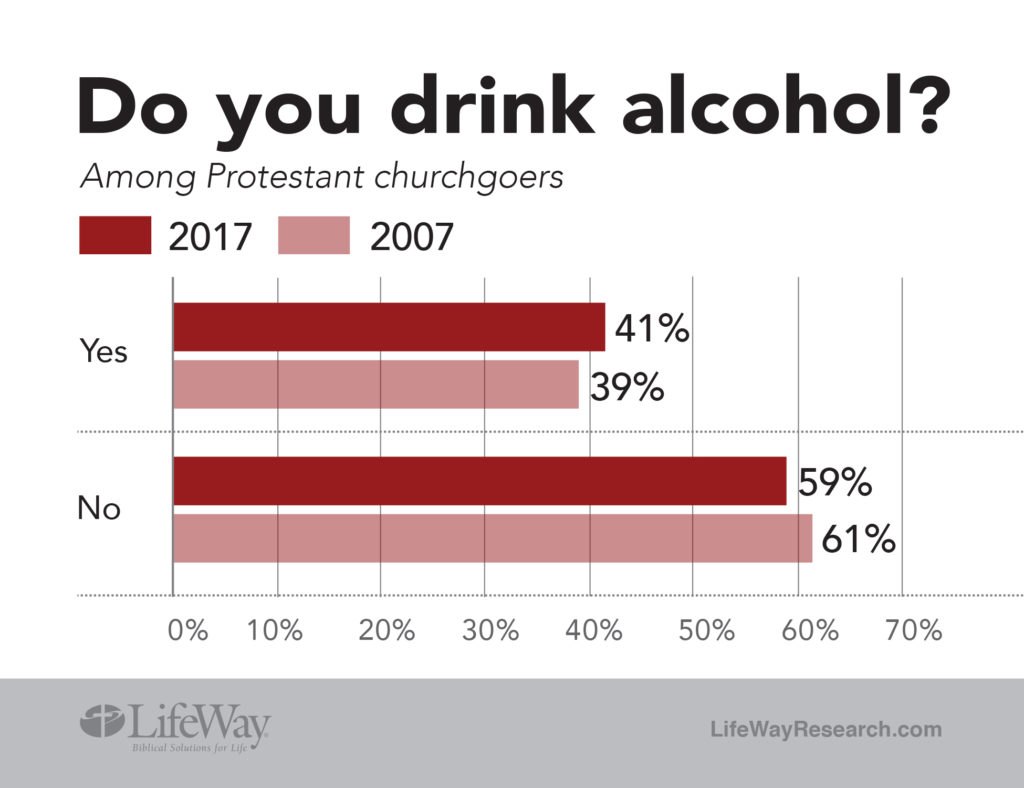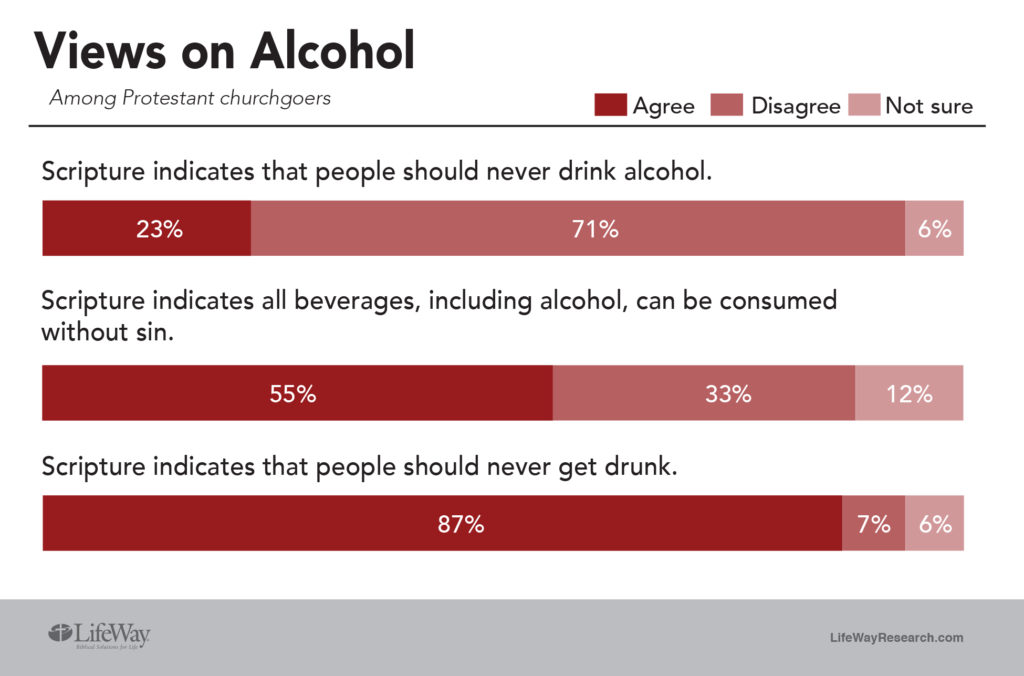About one third of Baptists admit to drinking alcohol, according to a LifeWay Research report released Nov. 27.
Earlier this month Baptist Press published an article asking whether consensus might be shifting away from the teetotaling message preached by Southern Baptists for more than a century.
 “I believe we are seeing a change from total abstinence to a trend of acceptance of alcohol among Southern Baptists,” said Evan Lenow, an ethics professor at Southwestern Baptist Theological Seminary. “The emphasis has moved from warnings about alcohol to highlighting Christian freedom.”
“I believe we are seeing a change from total abstinence to a trend of acceptance of alcohol among Southern Baptists,” said Evan Lenow, an ethics professor at Southwestern Baptist Theological Seminary. “The emphasis has moved from warnings about alcohol to highlighting Christian freedom.”
The new LifeWay poll, however, said views on alcohol among Protestant churchgoers have shifted only slightly over the last decade. About nine in 10 say the Bible teaches against drunkenness, but four in 10 admit to drinking in moderation.
Fewer than 25 percent of Protestant churchgoers believe the Bible teaches total abstinence from alcohol and 55 percent say alcoholic beverages can be consumed without sin.
Forty-one percent said they drink alcohol and 59 percent said they do not. That is a 2 percent shift from 2007, when 61 percent said they don’t drink and 39 percent said they do.
A majority of Lutherans (76 percent) and Methodists (62 percent) say they imbibe, compared to 33 percent of Baptists, 43 percent of non-denominational Protestants and 23 percent of Assemblies of God and Pentecostals.
“While alcohol consumption continues be seen as mainstream in the United States, churchgoers’ attitudes about drinking haven’t changed much in the past decade,” said Scott McConnell, executive director of LifeWay Research.
Younger churchgoers are more likely to say they consume alcohol than older ones, and those with a higher education are more likely than others to drink.
 Sixty-two percent of churchgoers with a graduate degree say they drink alcohol, as do 59 percent with a bachelor’s degree. Among those with a high school diploma or less, just 26 percent say they drink.
Sixty-two percent of churchgoers with a graduate degree say they drink alcohol, as do 59 percent with a bachelor’s degree. Among those with a high school diploma or less, just 26 percent say they drink.
“Churchgoers’ perspectives on alcohol are not changing very fast,” McConnell said. “The majority believe that biblically they can drink, but they choose not to.”
For about 100 years Baptists widely read a church covenant that included a pledge to “abstain from the sale and use of intoxicating drinks as a beverage,” a practice continuing well into the 20th century.
“Why do you have to take two Baptists with you when you go fishing? Because if you take just one, he’ll drink all your beer.”
The Southern Baptist Convention reaffirmed its “total opposition to the manufacturing, advertising, distributing, and consuming of alcoholic beverages” in a resolution as recently in 2006.
A number long-running jokes, however, question how seriously those public pronouncements are taken by people in the pew.
“There are three truths in life,” one goes. “Jewish people do not recognize Jesus as the Messiah. Protestants do not recognize the Pope as the leader of the Christian faith. Baptists do not recognize each other in the liquor store.”
“Why do you have to take two Baptists with you when you go fishing?” asks another. “Because if you take just one, he’ll drink all your beer.”
Nowadays, many churches not only imbibe openly but even hold Bible studies and hymn singalongs in beer pubs in an effort to reach new members.
“It’s really a low-key way of talking about life issues as they relate to scripture,” a church member described one such “Beer and Bible” gathering in a 2015 Baptist News Global article by Jeff Brumley. “Scripture is the anchor and that’s how we really connect with what we have in common.”
